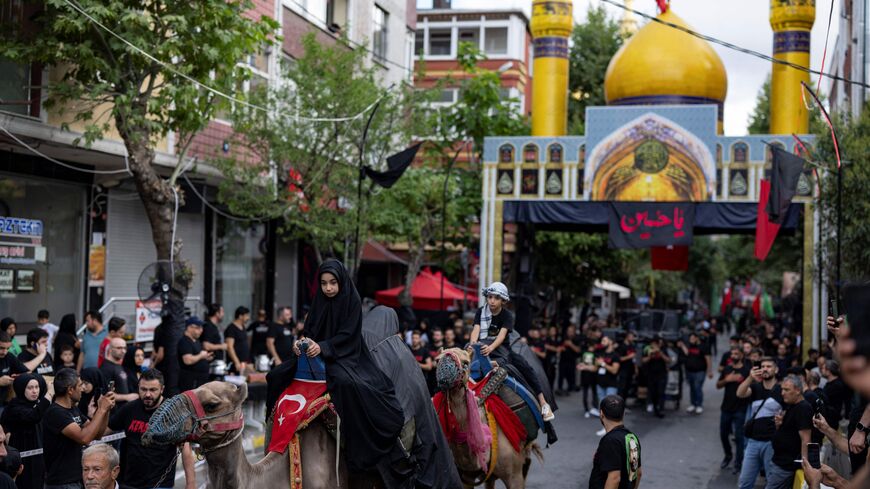BEIRUT — Millions of Shiite Muslims across the world are commemorating Ashura on Friday and Saturday, at a time of heightened tensions between Muslim countries and the West.
Ashura falls on the 10th day of the Muslim month of Muharram. On that day, Shiites mark the anniversary of the killing of Imam Hussein, the Prophet Muhammad’s grandson, during the Battle of Karbala in Iraq in the seventh century. The death of Hussein, whom Shiites view as a martyr killed by Sunnis, is one of the many reasons behind the deep rift between Sunnis and Shiites.
In the past years, attacks against Shiites marking Ashura have been frequent. On Thursday, a car bomb in the Syrian capital, Damascus, exploded, killing at least six people and wounding more than 20 others. The explosion occurred near the Sayeda Zeinab shrine, one of Syria’s most visited Shiite shrines. It came days after a bomb planted in a motorcycle exploded also near the shrine on Tuesday, wounding two civilians, according to state TV. The attacks came despite heavy security deployed in the area ahead of Ashura, which Syrian Shiites will mark on Saturday.
طوفان بشري في يوم #عاشوراء الحسين ملبين بنداء "#هيهات_منا_الذلة"
— 🇮🇷Moh Gharawi (@MohammadGharawy) July 28, 2023
إنها صنعاء.. الحسينية pic.twitter.com/fk58XalZB0
In Turkey, thousands of Shiites marked the day in a rally in Istanbul. Lebanon and Iraq will also mark Ashura on Saturday. Shiites are planning a large procession in Beirut’s southern suburbs, the stronghold of the paramilitary Hezbollah movement. Meanwhile, Iraq is preparing to welcome millions of Shiites from across the world who will descend on Karbala, where Imam Hussein is buried.
Various traditions and rituals are held in Shiite-majority countries to mark the day. Large marches and processions are held in several countries, as well as reenactments of the Battle of Karbala, and Shiite shrines in the region witness the arrival of large crowds. The most controversial of traditions is self-flagellation — or whipping using sharp-edged blades, chains or swords as a symbol of sacrifice and struggle. The bloody ritual has been banned in several countries, most prominently in Iran after late Iranian leader Ayatollah Ruhollah Khomeini issued a fatwa prohibiting the practice in 1994.
Iran, the world’s largest Shiite country, commemorated Ashura on Friday with processions held across the country. Afghanistan and Pakistan, which are home to large Shiite communities, also marked Ashura on Friday. Turkey’s Shiites, who are mainly concentrated in Istanbul and in the eastern provinces bordering Iran, held marches and served traditional Turkish dessert on Ashura.
Shiites in the Houthi-held areas of Yemen also commemorated the day of Ashura, holding large processions across the streets of Sanaa, Marib and Saada.
Of the 1.6 billion Muslims in the world, between 154 million and 200 million are Shiites, according to the Pew Research Center.
This year, Ashura falls at a time of heightened tensions between Muslim countries and some Western countries, namely Sweden and Denmark, over several incidents of Quran burnings this year.
Saudi Arabia, Iran, Egypt and others have summoned the Swedish ambassadors to denounce the acts they say desecrate the holy Muslim book. Last week, the Swedish Embassy in Baghdad came under attack by angry protesters, pushing Sweden to temporarily withdraw its embassy staff.








